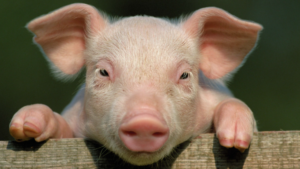The connection between animals and agriculture has deep historical roots, shaping food systems and cultures worldwide. Today, animals continue to play a critical role in food production, impacting our diets, economies, and ecosystems. This article delves into the multifaceted relationship between animals and agriculture, highlighting their historical significance, their place in modern food systems, and the ethical and environmental concerns that accompany their use.

Historical Significance
Throughout history, animals have been our steadfast companions in the journey of agriculture. In ancient times, from the fields of Mesopotamia to the terraces of the Inca Empire, they played multifaceted roles essential to the survival and progress of human civilizations.
In the fertile crescent, oxen bore the burden of plowing the land, paving the way for agricultural growth. Horses and mules served as engines of transportation, connecting communities and enabling trade. The beasts of burden were also our primary source of sustenance, providing meat, milk, and wool for clothing. This historical relationship between humans and animals laid the groundwork for the development of societies, fostering the growth of agriculture as we know it today.
Livestock in Agriculture
In today’s world, modern agriculture relies heavily on livestock to sustain the global food supply chain. A diverse range of animals, including cattle, poultry, swine, and more, play pivotal roles in providing us with meat, dairy, and other animal-based products that form a substantial part of our diet. This reliance on livestock highlights the integral role they play in addressing the nutritional needs of our ever-expanding global population.
Efficiency is the key in the modern agricultural landscape, as the demand for food continues to surge. Livestock farming has become an intricate web of interconnected systems, from breeding and nutrition to health management and transportation, all with the primary objective of maximizing output while ensuring animal welfare and environmental sustainability.
Animal Agriculture Sustainability
However, the significant role of animal agriculture in food production also raises environmental concerns. Issues such as greenhouse gas emissions, deforestation, and water usage have led to a growing emphasis on sustainability in animal agriculture. This section explores the environmental impact of the industry and the pursuit of sustainable practices.
Ethical Considerations
The treatment of animals in food production has become a prominent ethical concern. Issues like confinement, overcrowding, and inhumane practices have sparked debates over animal welfare and rights. The modern consumer’s desire for more humane treatment of animals has significantly impacted the industry.
Animal Welfare Regulations
To address ethical concerns, many countries have introduced animal welfare regulations and certifications. These standards aim to ensure the humane treatment of animals in agriculture, covering aspects like housing conditions, healthcare, and transportation.
Alternatives to Animal Agriculture
In response to environmental and ethical concerns, there’s a growing shift towards plant-based and alternative protein sources. This shift is not only driven by concerns over animal welfare but also by a desire to reduce the environmental footprint of food production.
Innovations in Animal Agriculture
Advancements in technology are shaping the future of animal agriculture. Innovations like precision agriculture, genetic improvements, and more efficient farming practices aim to make animal agriculture more sustainable and ethical.
A Balanced Approach
Balancing the need for food security, sustainable agriculture, and ethical treatment of animals is a complex challenge. This section discusses the importance of considering all these factors in shaping the future of animal use in agriculture.
Conclusion
The relationship between animals and agriculture is intricate and multifaceted. Understanding the historical significance, ethical concerns, and environmental impact of using animals in food production is essential as we strive to build more sustainable and humane food systems. The debate continues, but finding a balanced approach that considers food security, sustainability, and ethics is crucial for the future of agriculture and our planet.
